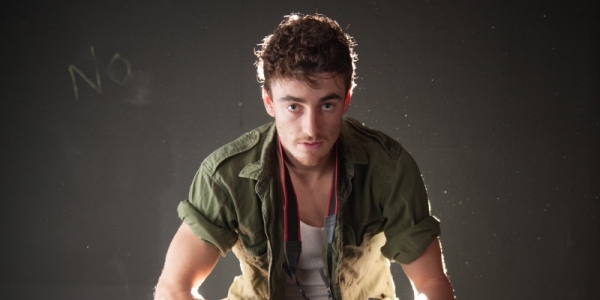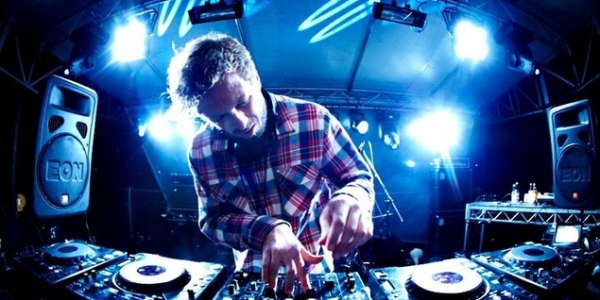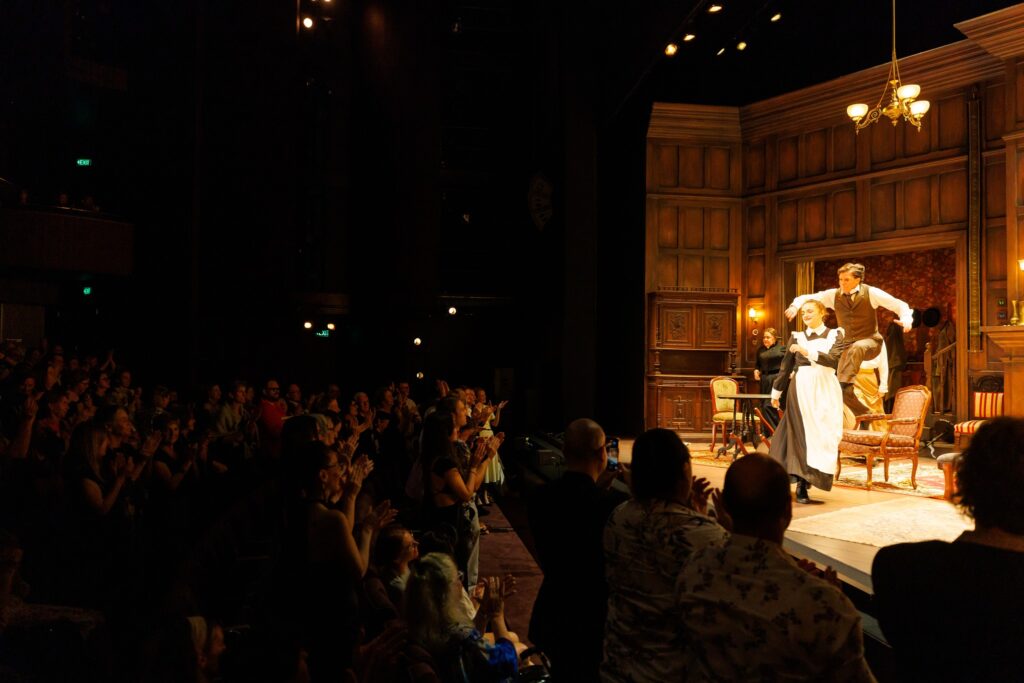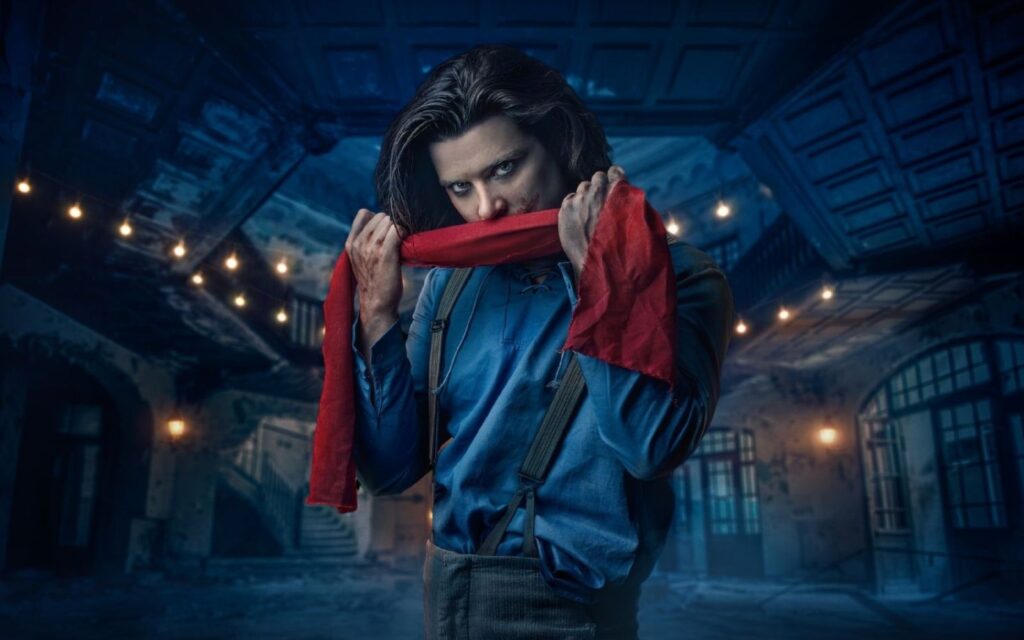About Tommy has journeyed to the Red Stitch Actor’s Theatre after its original showing in Europe. The first translation into English was for the London audience and lead actor Matthew Witty assures that while regionally specific nuances have been changed, nothing has been lost in translation.
“UN Peacekeepers are just people from around town so you need those regional colloquialisms and then we had to give it that local flavour,” Whitty says.
The idea of UN Peacekeepers being “people from around town” is a crucial element of this story. Even Whitty admits that once his costume is on and he dissolves into this character, things start to change.
“The way this play starts is like a boys club,” he says. “They’re going down there to party, really, which is what a lot of men think they’re gonna do before they actually go into these things. That primordial, adrenaline-fuelled feeling comes in to everything; whether you’re playing footy or going camping or listening to a whole lotta metal. During this time I’ve found myself going back to the days of listening to Metallica and Slayer which I thought I left behind a long, long time ago but it’s back and they may have found their way into the play officially which is exciting.
“You find that flavour of boys going to war all through this and it takes over you … You inevitably fall in love with whoever you’re playing. It’s a blurry line but I’m getting into army gear and holding real guns and putting on real helmets and talking in that talk; it takes on a surreal thing. You kind of want to be that person which is useful and you find that it takes over a little bit.”
Whitty and co. have just finished their first run through when we speak and are gearing up for opening night. When things finally move from read-throughs to the stage, a new layer of both nerves and enthusiasm also arrive. “It really does come with its own extra energy,” he says. “The first run through always has this amped up level of concentration and it’s the first time you’ve gotta try and forget all the clinical stuff. It’s always exciting and messy.”
The challenges that this play offers – both technically and in approaching the character – were just as appealing to Whitty as the story itself. “With this play, because of the style there’s no escape and you can’t layer anything onto you which is a really good thing, it keeps you honest,” he says. “Because it’s like a documentary, as research we watched a lot of documentaries and no matter what you’re talking about, no matter how horrific it is, you’re there to deliver the facts. The play forces you to strip back your performance and be clear … The thing that really drew me to it is the way it’s told. It’s has this real documentary feel that you don’t often see in theatre. There’s just this clean and clear connection with the audience in telling this story, you’re talking directly to them, and also the fact that it’s about UN Peacekeepers. You see war films all the time – war plays and war novels – but I’ve never come across something really delves into what it is to be a UN Peacekeeper which is really extraordinary.”
Although the clinical stuff is out the window, the complex technical side of Red Stitch’s About Tommy has its own myriad of hurdles.
“We have live projections, live camera footage and we have a working television that displays images as well so it’s all very technical. They’re cutting back and forward between Yugoslavia and Denmark, showing exactly how Denmark and really the world saw this conflict.”
No amount of technical embellishment, though, is able to overshadow this rich and confronting nature of this story. Even the term UN Peacekeepers is presented in About Tommy as quite a misnomer. To those at home watching these sorts of events from afar, the terminology creates this sense of security but the reality is far more horrific. Like the ethical dilemma facing any documentary filmmaker (‘I’m not here to intervene, I’m here to document the activity but am I guilty of silently bearing witness to inhumane actions?’) the UN Peacekeepers as presented in this play face the same dilemma.
“Really they don’t keep any peace, unfortunately, they just watch what happens between two warring sides,” he says. “They observe it, they document it and that’s it, they’re not allowed to stop anyone doing anything which is just horrific when you’ve got a really dirty, guerrilla war.”
To many, including the characters of this play, it’s easy to wonder what the point is. “Yeeep,” he says in a drawn out way. “‘What is the point?’ is always gonna come up and that’s the constant struggle that these characters have. They’re always trying to hang on to the reasons they were given and the reasons they were led to believe, they want peace, yet they see what they see.”
BY KRISSI WEISS







